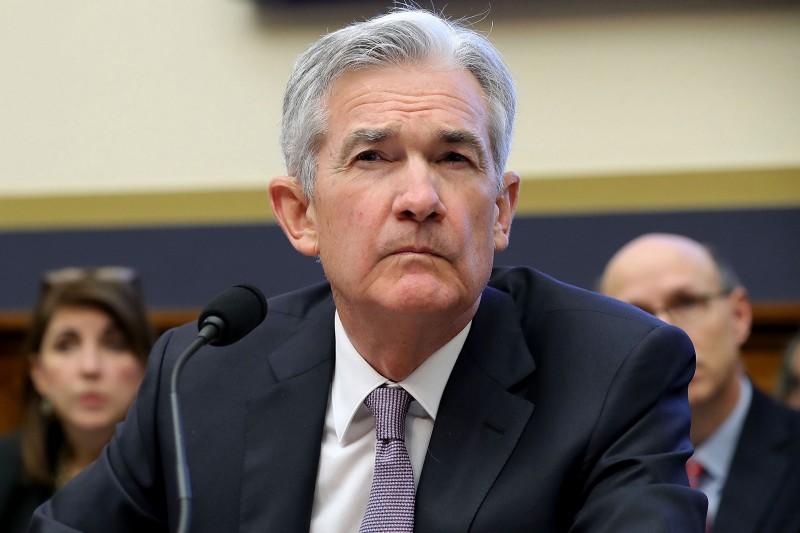Authored by Omid Malekan via Medium.com,
A lot of people are questioning the reasons to own crypto assets these days, a natural thing to do given the ongoing bear market. But let us not forget the original Bitcoin investment thesis, which thanks to two simultaneous developments this week, is alive and well.
* * *
First, the Federal Reserve flinched on further rate cuts, and signaled a desire to slow down the unwind of its balance sheet. For those who think the Fed bases monetary policy on the actual economy, this came as a surprise, as the only major economic report since the last Fed meeting was the hottest jobs report in a decade. But for those who think the Fed mostly cares about financial markets, as was blatantly stated by one of the worlds biggest hedge fund managers, the change was expected. Stocks just recorded their first down year in a decade.
For years, those of us who have been publicly critical of the orthodoxy in central banking have asked a simple question: How much of a decline in the S&P 500 does it take for central bankers to admit that, for all their talk about unemployment and helping the middle class, they only care about juicing investments? The answer, we now know, is a little over four percent.
Across the pond, the European Central Bank gave us even more of a reason to be long crypto, by taking the implicit lie at the heart of the greatest monetary experiment in history and making it explicit. Which lie? The one that claims their alphabet soup of programs are designed to help the middle class.
Ever since the crisis, economists have told us that the best way to help ordinary people is not by giving them free money. It’s to give free money to the financial system, then hoping all those printed dollars, euros and yen somehow magically end up in the hands of people who need them — even though by virtue of being poor such people have the loosest ties to that system. My arch nemesis Ben Bernanke even wrote an essay spelling out how this is so. In short, if you are poor, unemployed and don’t even have a bank account, your government is helping you by subsidizing Wall Street.
But this week, the ECB took this deceit even further, by tweeting a video that explicitly claims giving free money to rich people helps reduce income inequality.
ECB asset purchases have reduced inequality in the eurozone, our research shows. They have especially benefited low-income households, which suffer the most from unemployment. Full Research Bulletin here https://t.co/MlMQO2BXxK pic.twitter.com/4DtpcOsqms
— European Central Bank (@ecb) January 30, 2019
It’s a statement so ridiculous only an economist would be foolish enough to believe it. Their video cites a bulletin, which cites a paper, which is written in that unnecessarily obtuse language economists prefer because it prevents ordinary people from realizing how ridiculous they are. So allow me to translate:
Let’s say that we had 10 millionaires who have jobs, and 2 poor people who don’t. Let’s also say that the ECB prints a trillion euros, and gives each millionaire a hundred billion. To celebrate their government-given riches, the newly-minted billionaires decide to throw a party and hire the poor (at minimum wage) to serve champagne. According to the ECB, they have reduced inequality. How? By reducing the poor-people unemployment rate more than the rich-people unemployment rate. (The rich already had jobs, so their unemployment rate was zero and couldn’t decline.)
Scroll back up and look at the image that accompanies their tweet, and you’ll see that this is in fact what they mean. If you watch the video, they actually mention that their policies make markets rise, then ignore it. That this kafkaesque torturing of the data ignores the fact that those policies made the rich far richer, the ECB, Ben Bernanke and now perhaps even Jerome Powell would like you to believe, doesn’t matter.
Except that it does matter to the yellow vests marching in Paris, the Brits who voted for Brexit and the Americans who voted for Bernie or Trump and now support candidates like Elizabeth Warren. Different as they seem, all of these movements share the core belief that the system is rigged. Our governments just confirmed that it is.
So why crypto?
Because no matter how big a lie, how often it’s tweeted or how many Econ PhDs are naive enough to believe it, you can only push it for so long until something breaks.
The biggest benefits of radical monetary policy are now behind us, while the biggest costs lay ahead. In other words, there is no such thing as a free lunch, but there is a cheap Bitcoin.
via ZeroHedge News http://bit.ly/2D1Mndd Tyler Durden
